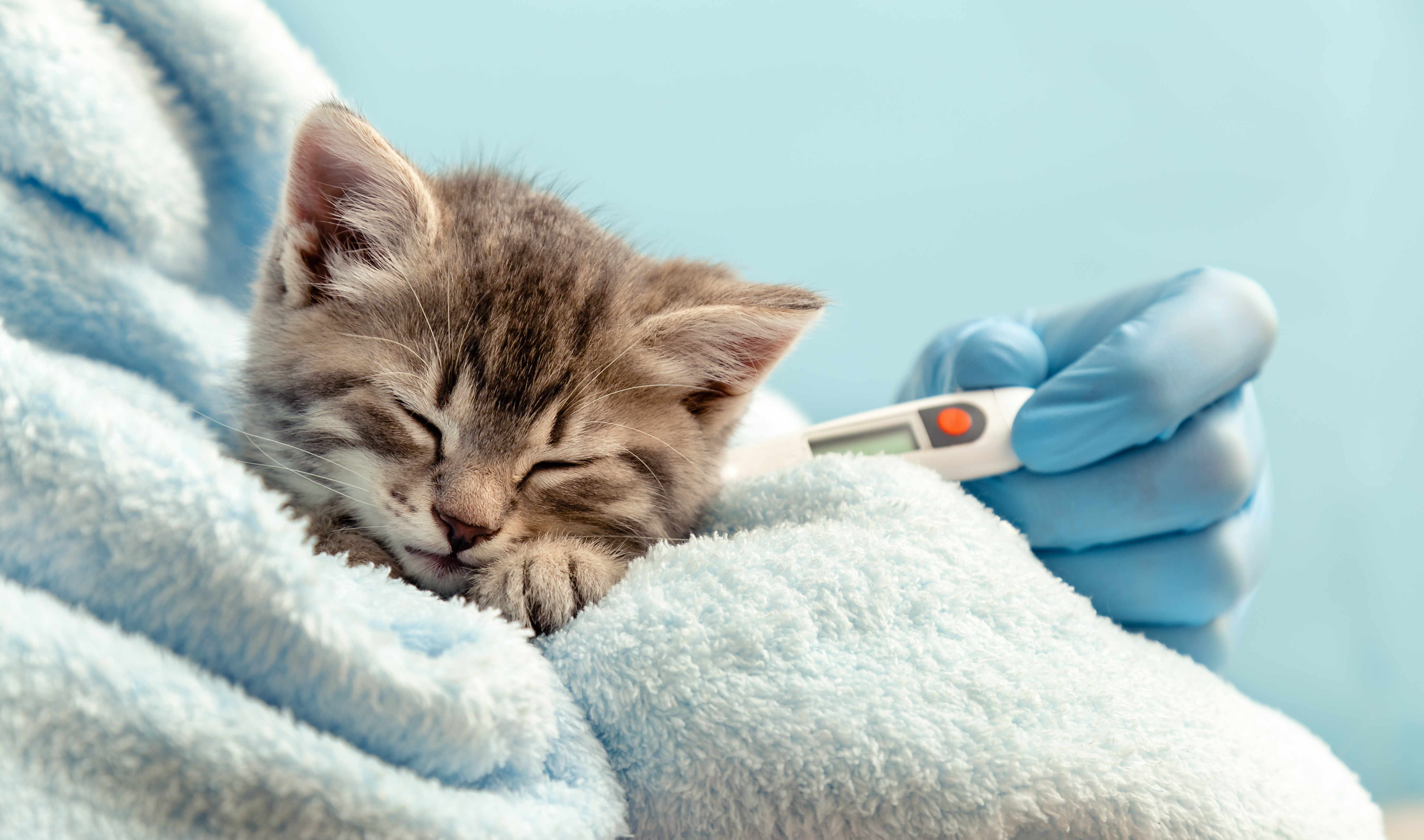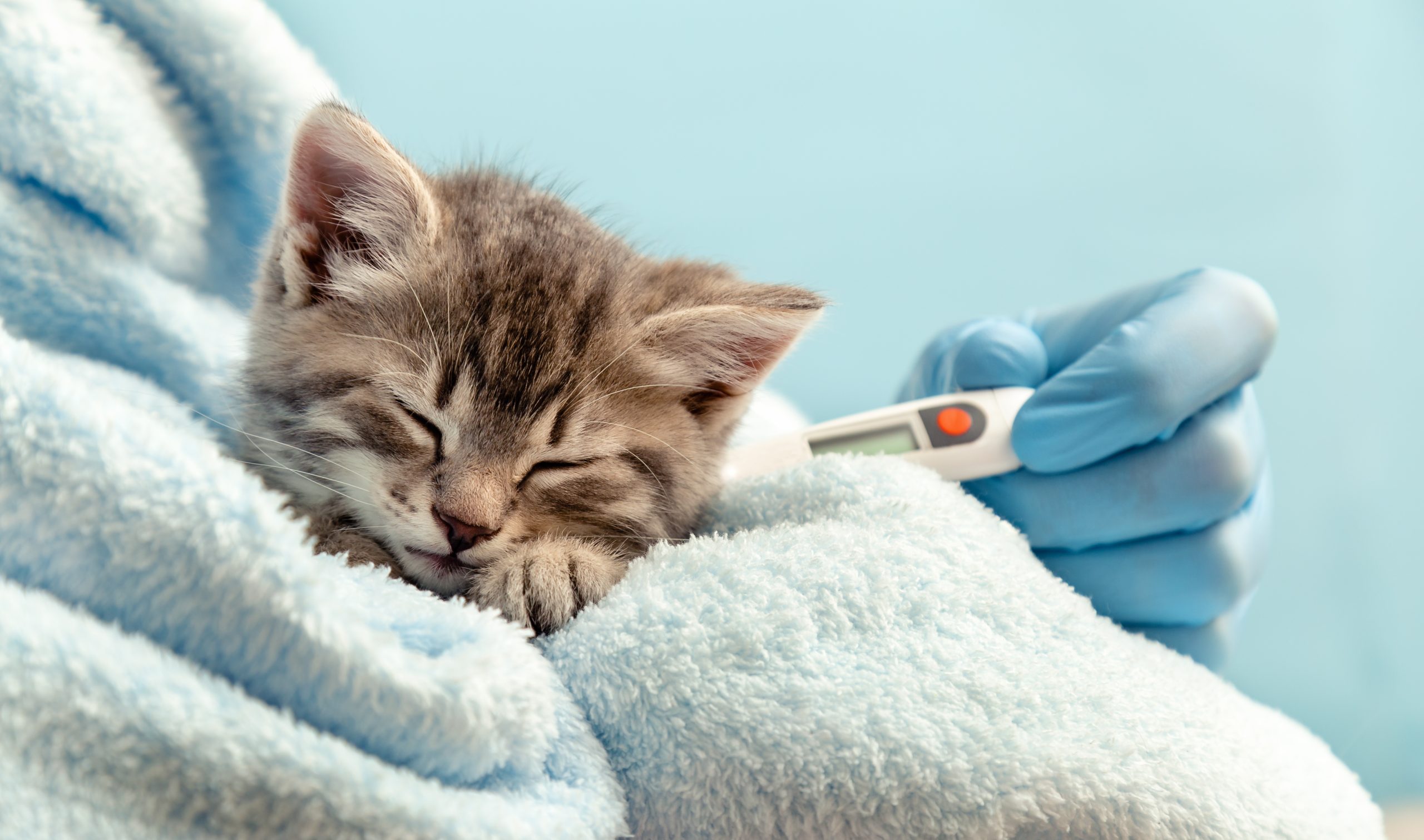
If you feel something is wrong—say, your stomach hurts or your leg hurts—you can usually explain to others what’s going on. You might tell a doctor what your symptoms are and what your pain level is, while adding other information to help the practitioner understand.
But cats can’t tell us how they feel.
Whatever their ailment, what are some signs that can help us better understand our feline friends and know if something is wrong? Read on to learn what to look for when something is wrong with your cat—and what to do about it.
Cats vs Dogs
Not only do our feline friends communicate differently than us humans, but “cats are both predators and prey, and so they hide a lot of their hurt in their sick behavior,” says M. Leanne Lilly, clinical assistant professor at Ohio State University Veterinary Medical Center. .
Compared to dogs, cats also tend to be more independent and misunderstood by caretakers. Jason Taricone, a board-certified small animal surgeon, says he thinks “it’s easier for people to notice that something is wrong with their dog than with their cat.”
Compounding the problem, we seem to be taking dogs to the vet more in general. According to 2020 survey published in the journal Animalsabout 90 percent of dog owners took their canines to the vet—compared to only 40 percent of cat owners.
Signs that your cat is sick
(Credit: Shutterstock/Roman Chekhovskoy)
Tarricone has three cats. For some reason, one of his cats, Addie, tends to throw up about once a week. After doing many tests and evaluations, Tarricone says this is just normal for Addy. Simply put, something that may appear abnormal is not necessarily abnormal.
“It really can [vary] from cat to cat,” he says, adding that it’s important to know what’s typical for your cat personally. “If you’re petting your cat the way you normally do, and it’s otherwise a nice cat, and then suddenly it hisses at you – that could be evidence of pain.”
Read more: Why people love their chaotic, misbehaving cats
Hissing and purring
Usually, Tarricone says, a cat won’t hiss unless it’s being teased by another cat, scared or uncomfortable. And most of them cats purr when they are happy – but not always.
Bruce Kornreich, the director of the Cornell Feline Health Center, says that in some cases, they “may purr when they’re in discomfort.” Although it hasn’t been proven, he says, some studies even suggest that purring may be related to bone healing.
Either way, observing whether your cat becomes more or less vocal over time can be a useful tool.
Other behaviors
Just as you know what is normal for you, which may differ from your sibling or friend, understanding your cat is key. However, there are some signs that may be easier to spot if something is wrong.
For example, a cat that eliminates out of the litter box may indicate stress or another ongoing health problem and may require evaluation.
If your furry friend isn’t moving or playing as much, or is more lethargic than normal, these can also be signs that something is wrong. Likewise, if your cat doesn’t usually hide, but suddenly hides a lot, keep a closer eye on her.
Perhaps their appetite or weight suddenly increases or decreases dramatically, they urinate more often, or they groom themselves more or less than usual. Kornreich says all of these changes can get you a grade.
Vital signs
Kornreich also explains that the normal breathing rate for cats is about 35 beats per minute (BPM). This is different from, say, an adult’s respiratory rate, which is usually between 12 and 20 BPM.
If you calculate your cat’s respiratory rate – by counting the rise and fall of their chest for one minute while they are sleeping or still – and it is elevated, this may also signal an abnormality.
Their eyes can also give us a clue. Specifically, the small membrane or third eyelid that is located in the inner corner of the cat’s eye.
“Usually it’s not visible, but when they get sick, it often shows up and you’ll start to see that line coming out of the inner corner of their eyes,” Lilly says. “Third eyelid lift it may be a sign of illness.”
Developing healthy habits
(Credit: Shutterstock/Stock-Asso)
The problem, Tarricone says, is that most people won’t pick up on some of the subtle signs and abnormalities — which is why annual vet visits are important. Like people, “there are some things that can be found during a routine exam, even if the cat doesn’t show outward signs of illness, that would require early intervention,” Kornreich says.
Also, making sure your cat is eating a well-balanced diet with the right nutrients can help with their overall health. “You can tell that your food is nutritionally complete and balanced by looking for what’s called the American Association of Feed Control Officials, AAFCO, seal of approval on the package label,” Kornreich explains.
Tarricone says to stay away from home-cooked meals or vegetarian diets, which may lack essential nutrients. “People who don’t realize this can actually do significant harm to their cats,” he says, adding that he’s seen cats become paralyzed, together with other matters relating to these diets.
Keeping your cat indoors can also help increase longevity, Kornreich says: “We know that cats who are kept indoors are less likely to get injured, get infectious diseases, to be prey or to be hit by vehicles.’
Read more: How long can cats be left alone?
What’s wrong with my cat?
In terms of deciphering your cat’s pain level, there’s a science-based cat grimace scale that can be downloaded and used by cat owners, Lilly says. While the application known as the cat grimace scale it is not a diagnosis, it can serve as a guide.
Of course, figuring out if your feline friend is hurt or sick can be a complicated task. But some experts say certain conditions are more common in different breeds—so learning about the type of cat you have and what to watch out for can also be helpful.
At the end of the day, is there something wrong with your cat? Should you take your furry friend in for an evaluation?
Lily says, “if you’re concerned enough to ask a friend or look on Google, you’re concerned enough to get your cat [to a veterinarian].” Especially when you consider that your furry companion can’t tell you how he feels.
Read more: Can cats get dementia?

